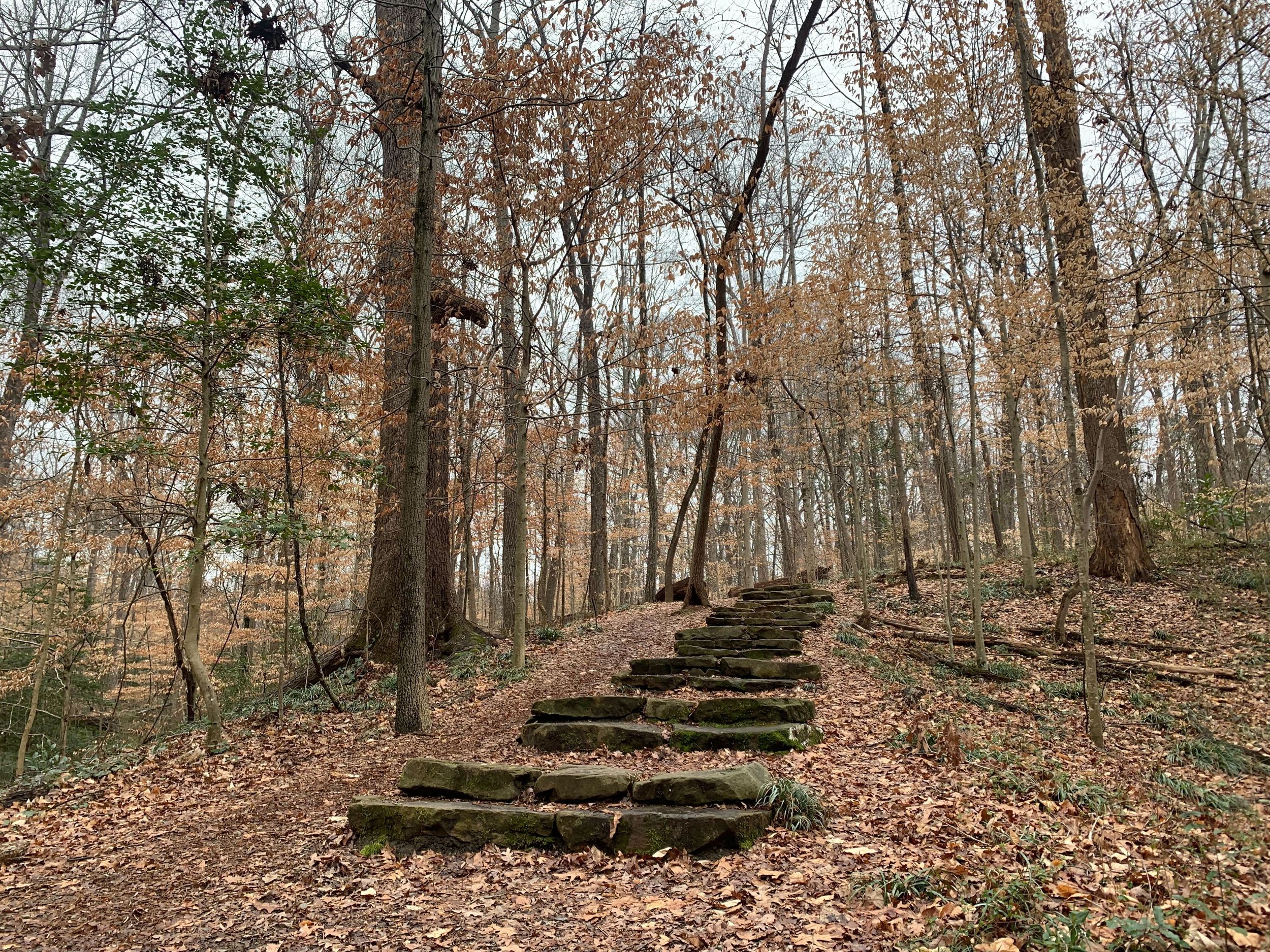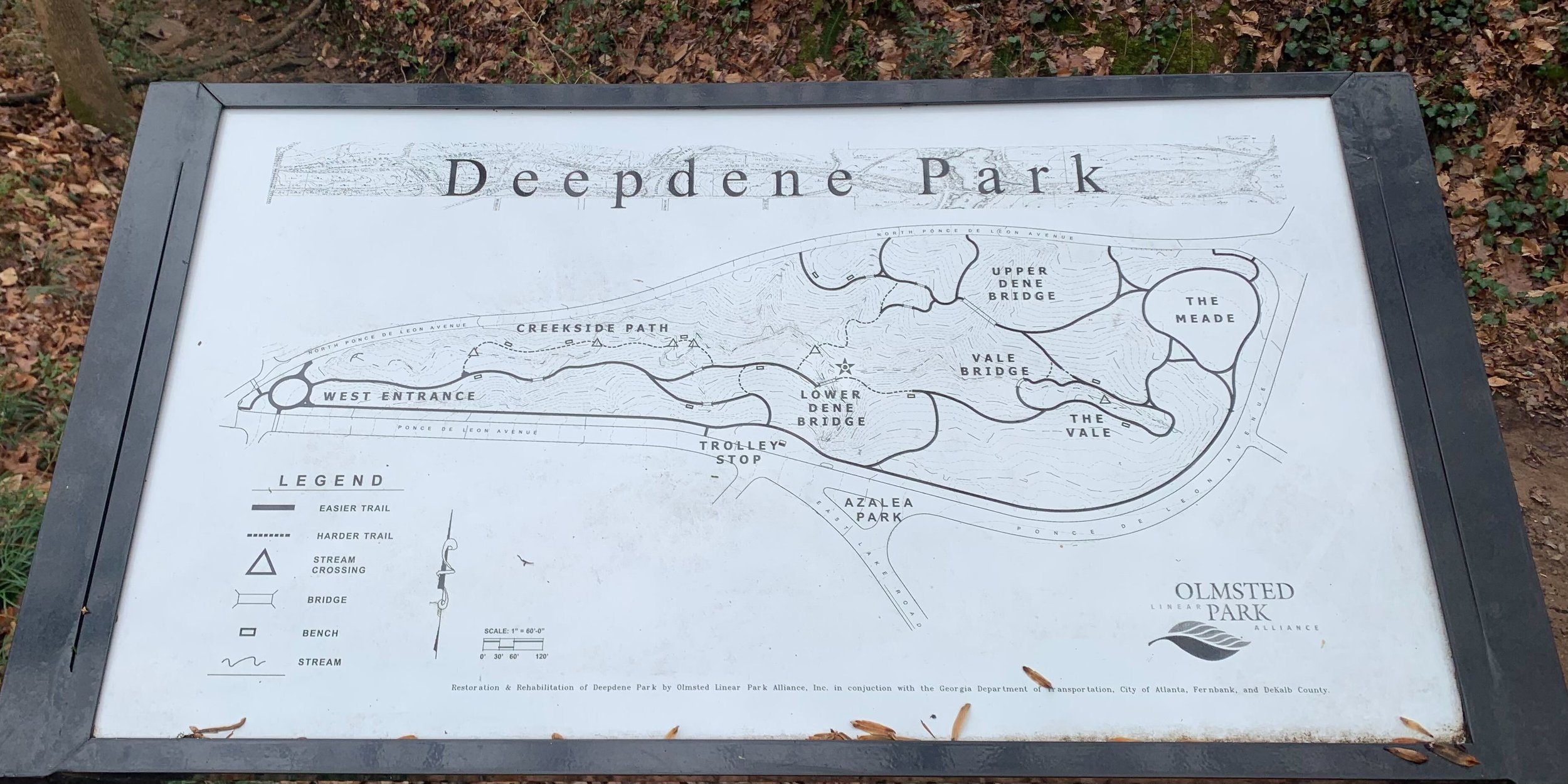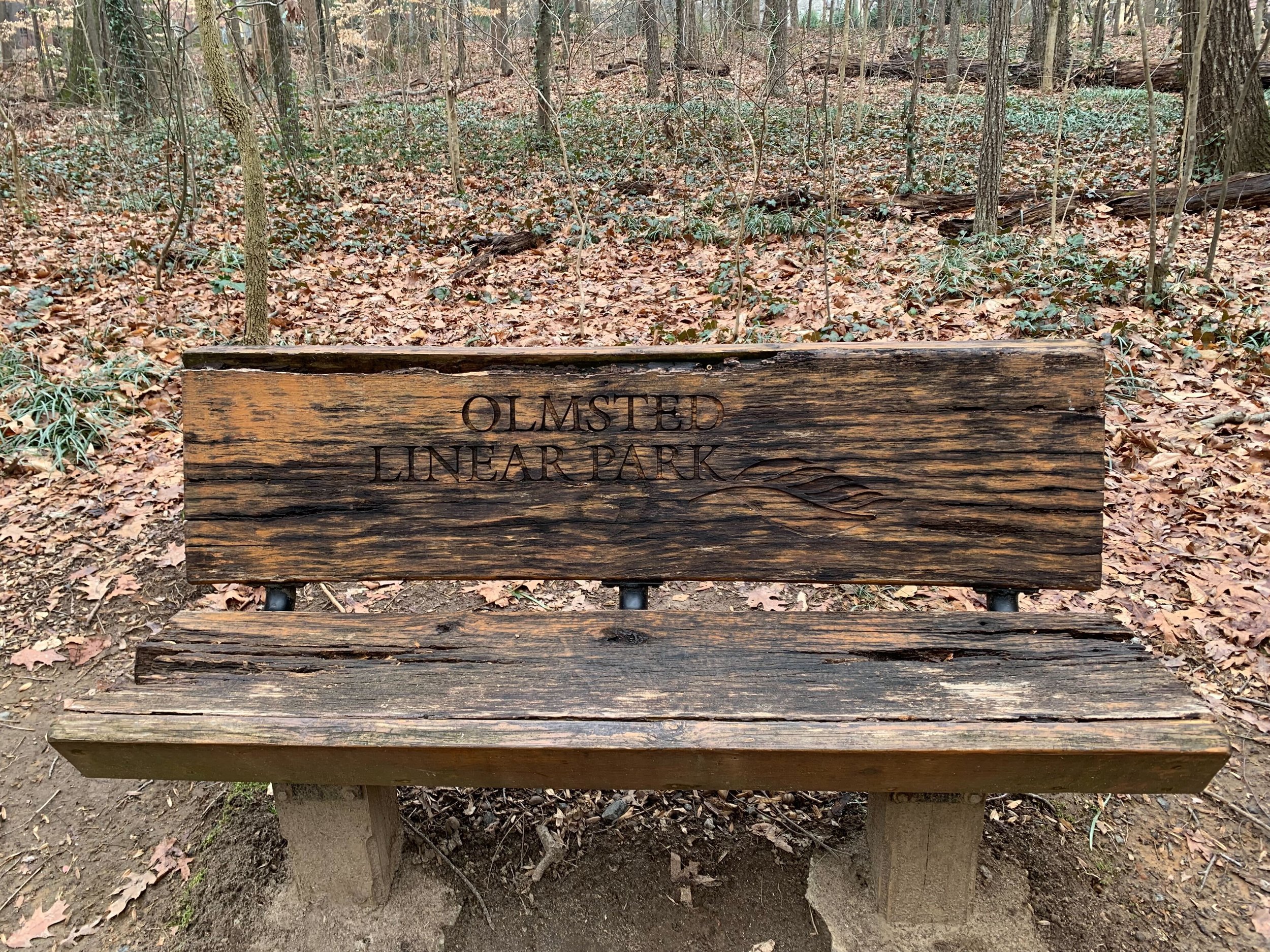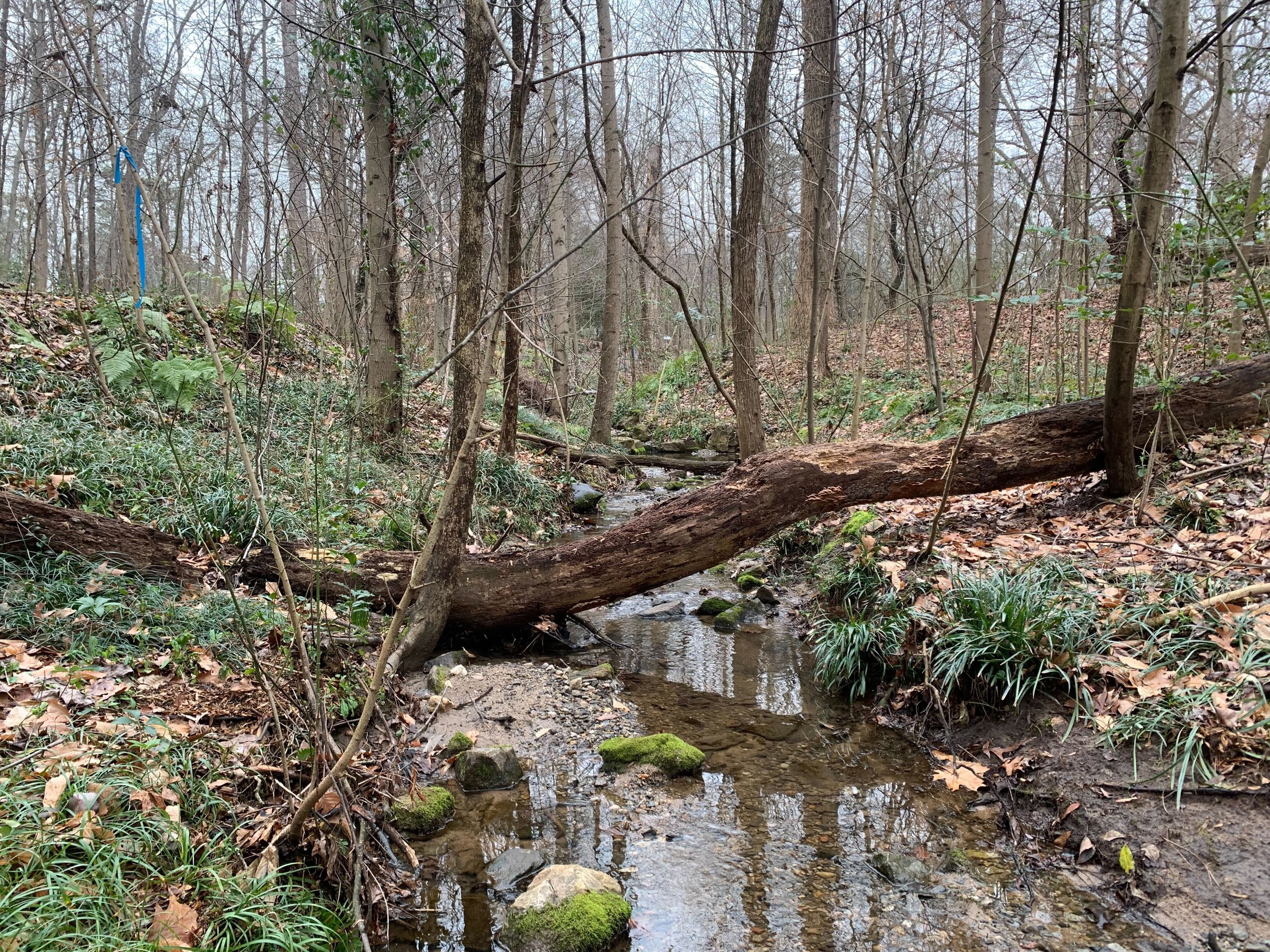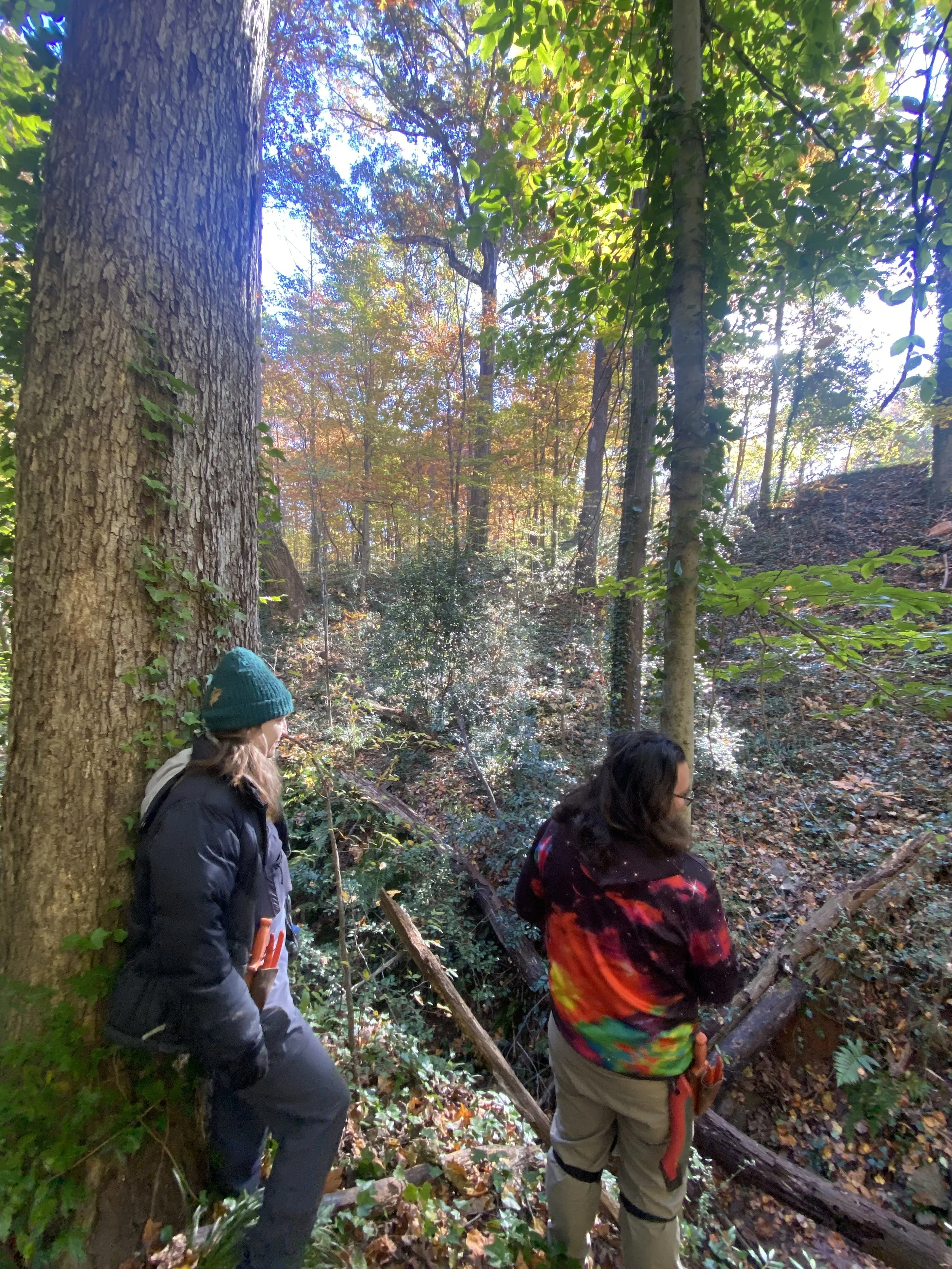
Woods Keeper at
Deepdene Park

Deepdene Park Fall Recap 2025
After a couple of months away it’s so good to be back at gorgeous Deepdene Park!
We jumped right back into invasive plant management targeting woody trees and shrubs like bush honeysuckle and Callery pear while preserving the vast variety of native plants that call this park home. During our most recent workday crew leader Paige spotted a not-so-common native hawthorn tree. It’s finds like these that highlight what make Deepdene Park so special.
Behind the scenes we’ve been working hard with Birds Georgia and Olmsted Linear Park Alliance on a management strategy for the 22-acre park. Division of duties, seasonal priorties, and a monitoring program with Emory Ecological Society are just some of the components that make up this extensive plan.
As we continue to suppress and remove the invasive shrubs, trees and climbing vines to a minimal amount, our priorities will increasingly shift to groundcover control. We’re looking at you Liriope!
If you happen to see us out in the woods, please don’t hesitate to say hi and ask questions. We love the work and would be happy to talk about all the cool finds as well as the challenges we face in preserving and restoring this historic park.
Overview:
Partnering with Olmsted Linear Park Alliance, Birds Georgia, and core volunteers, Woods Keeper joined the restoration efforts in the Summer of 2024.
Thanks to previous efforts by so many before us, much of the forest is in superb condition. However some areas are congested with evergreen invasive plants such as privet, horned holly, mahonia, elaeagnus, and more. Our goal is to suppress and remove those invasive plants to make room for more native plant biodiversity. Determining priorities is a collaborative process between OLPA and its partners.
Deepdene Park is just 1 of 6 segments that make up Atlanta Olmsted Linear Park. Unlike the 5 pastoral segments, it is a 22-acre wooded tract whose shade provides opportunity for many invasive plants to thrive. Stiltgrass and chaff flower are two of the more difficult invasive plants to control although its a challenge to which are are committed.
For more about Olmsted Linear Park visit altantaolmstedpark.org



